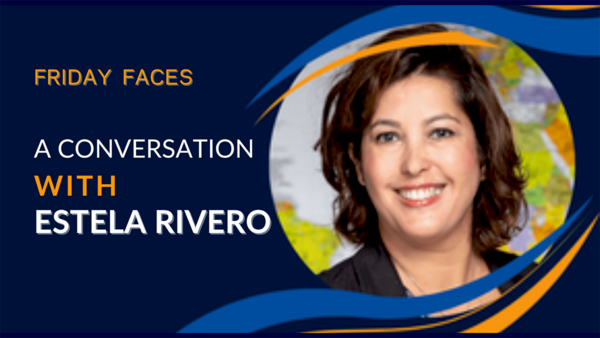
Estela Rivero is a senior researcher and co-director of the Central America Research Alliance (CARA). A social demographer by trade, Estela has over 20 years of experience evaluating social programs in Mexico, Central America, and the Caribbean, researching gender, migration, youth, and violence issues.
Her insatiable inquisitiveness and yearning to dive deep to understand a problem, a concept, or a phenomenon from all perspectives help her bring new questions and insights to the table. Fluent in Spanish and English, Estela has worked collaboratively across international and interdisciplinary teams in academia, research organizations, and development agencies. In an interview that has been edited and condensed for clarity, Estela discusses her experience and journey in the global development sector.
Why did you choose to work in Global Development?
I came to international development work by serendipity, to be honest. In college, I studied actuary sciences, which is applied mathematics, and specialized in statistical analysis. After college, I started doing public opinion polls with the Mexican government.
I always thought I would work in Mexico, but I went on to do a Ph.D. in demography at Princeton University and to work for the World Bank in the gender division, working with indicators that allowed for a cross-country comparison. That was the beginning of my career in international development. From there, I worked on reproductive maternal and child health projects with the Population Council, a leading research organization that produces evidence and design solutions to improve the lives of underserved populations around the world.
What has been your favorite project that you've worked on while at the Pulte Institute?
Two projects stand out to me: the first is the American Research Alliance or CARA. I think what we are doing is quite unique in terms of bringing researchers and civil society organizations together. Learning to work together with a common goal is a great opportunity, and there’s the potential for many good things to come.
At the Pulte Institute, the projects we work on have better results if we work with local partners. But we need to build trust, and we need to know how to work together. CARA is giving us the opportunity to do that.
The other project is the evaluation of the Gang Resistance Education and Training Project or G.R.E.A.T., that we are conducting in Central America. It's an important project with relevant policy implications. We're working with groups of children with special needs and middle school-aged children in countries and areas where violence is prevalent.
We're doing an evaluation to understand what can be done to prevent their engagement in gangs and to decrease their probability of engaging in violence.
How do you feel you're making a difference through your work?
My work is making a difference in at least three ways. The first one is through my evaluations, along with faculty, which helps USAID, governments, and implementers to learn what works and what does not. In the case of the G.R.E.A.T. evaluation, we are working with INL (Bureau of International Narcotics and Law Enforcement Affairs), which reflects that at least 70 percent of those who we interviewed in middle school want to leave their country at some point. It's also a very violent area, and the fact that we work to know what works in programs that have the objective of having a better future — that's really relevant and impactful.
The second is that the data that we collect and the research we conduct help to answer other relevant questions that may improve the design and structure of the intervention but also have an impact in terms of the academic community to help advance knowledge.
The most important implication is that we are helping raise the voice of those in the countries where we work and help others to listen. We are also working to incorporate our research partners’ voices in the knowledge products we are developing so they reach more and grow their audiences.